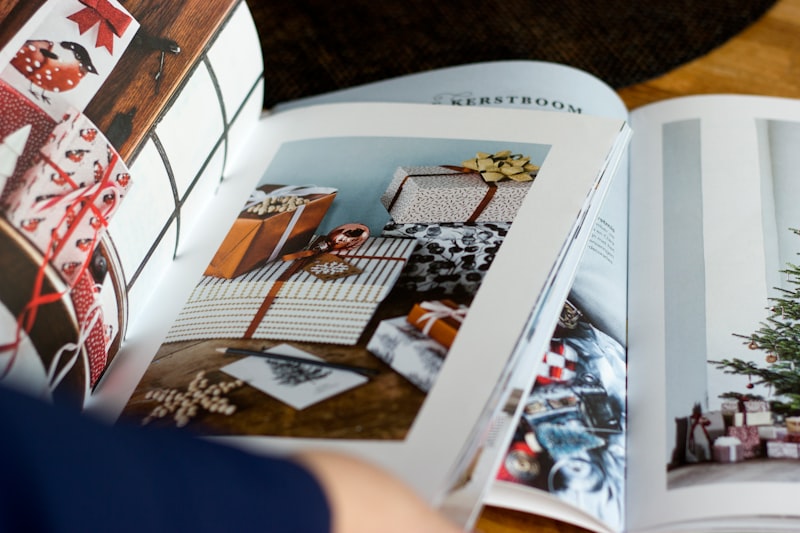How Do Parenting Magazines Address Diverse Parenting Styles?
Parenting magazines approach diverse parenting styles by providing a comprehensive range of articles and advice tailored to different parenting approaches. They recognize the importance of acknowledging and addressing the unique needs and preferences of parents from various cultural backgrounds. By offering insights, tips, and strategies, these magazines aim to support and empower parents in their individual parenting journeys.
Imagine flipping through a parenting magazine and finding articles that span everything from traditional methods to more modern, unconventional techniques. It’s like getting a peek into a kaleidoscope of parenting philosophies, each unique and valuable. Parenting magazines understand that one size doesn’t fit all when it comes to raising kids, and they celebrate this variety.
First off, these magazines cater to a global audience, offering insights into parenting styles from different cultures. For example, you might stumble upon a feature about how Scandinavian parents embrace a relaxed, child-centered approach, or how Asian parents might emphasize academic achievement and discipline. By including these perspectives, magazines help parents appreciate the rich tapestry of global practices and find what resonates with their values.
Moreover, parenting magazines are keen on spotlighting non-traditional families. They often include articles on parenting in same-sex couples, single parents, and blended families. This inclusivity ensures that every parent, regardless of their family structure, finds relatable advice and support.

Navigating Diversity: How Parenting Magazines Reflect a Spectrum of Parenting Styles
Imagine each magazine as a colorful tapestry woven with different threads of parenting philosophy. Some issues might focus on the gentle touch of attachment parenting, celebrating the deep bonds formed through close physical and emotional connections. Others might highlight the structured routines of a more traditional approach, where schedules and rules set the stage for a child’s development.
What’s truly fascinating is how these magazines reflect the latest trends and shifts in parenting culture. For instance, you might find articles exploring the benefits of minimalist parenting, which emphasizes simplicity and quality over quantity in raising kids. Or, you might encounter pieces dedicated to the Montessori method, showcasing how hands-on, child-centered learning can ignite curiosity and independence.
Parenting magazines also mirror our evolving societal norms. In one issue, you could see discussions about inclusive parenting, focusing on how to raise children with awareness and respect for diverse backgrounds. In another, there might be features on the rise of digital parenting, addressing the balance between screen time and real-life interactions in today’s tech-savvy world.
So, next time you pick up a parenting magazine, think of it as a window into the diverse landscape of modern parenting. Each article is a snapshot of different styles, ideas, and philosophies, all offering valuable insights to help you navigate your own parenting journey.
From Attachment to Authoritative: Parenting Magazines Embrace All Approaches
Parenting magazines have truly embraced this spectrum of approaches, recognizing that every family is unique. Some articles will extol the virtues of attachment parenting—think endless cuddles and responding to every cry with a hug. They paint a picture of a warm, nurturing environment where emotional bonds are as important as the air we breathe. You might find yourself dreaming of serene, peaceful mornings filled with gentle interactions and loving guidance.
But then, turn the page, and you’re met with authoritative parenting tips that introduce a different flavor. This approach is less about cuddles and more about structure. It’s about setting clear boundaries and expectations while still being supportive. Imagine a sturdy bridge with clear road signs guiding your way—this is how authoritative parenting works, giving kids both the freedom to explore and the safety of knowing where they stand.
What’s fascinating is how these magazines manage to present these varied styles not as opposing forces but as complementary options. They understand that you might blend elements from different approaches to suit your family’s needs. This variety is like having a toolkit with multiple functions—you pick what fits best for your situation at the moment.
So, whether you’re drawn to the warmth of attachment parenting or the balanced structure of authoritative methods, these magazines ensure that you have a wealth of information at your fingertips to craft your own unique parenting path.
Inclusive Parenting: How Magazines Are Broadening Their Scope to Cover Diverse Styles
Gone are the days when parenting magazines solely focused on traditional family structures. Today, these publications are embracing a broader spectrum of parental experiences. They’re featuring single parents, LGBTQ+ families, and blended families with the same depth and respect previously reserved for conventional setups. This shift isn’t just about representation; it’s about acknowledging that every family has its unique narrative and deserves to be seen.
Why does this matter? Think of it like this: when magazines cover a variety of parenting styles, they provide a platform for shared experiences and support. For instance, a single parent might find solace in reading about others navigating similar challenges, while an LGBTQ+ couple might discover tips tailored to their needs. It’s like having a community at your fingertips, guiding you through the ups and downs of parenthood.
Magazines are also tackling parenting topics with a more inclusive lens. Instead of assuming a one-size-fits-all approach, they’re exploring how cultural backgrounds, socioeconomic statuses, and personal identities impact parenting practices. This means you’re not just getting generic advice but insights that resonate with your specific situation.
By broadening their scope, magazines are helping to create a more inclusive narrative around parenting. They’re making sure that everyone, regardless of their background, feels seen and supported. So, next time you pick up a magazine, you might just find yourself nodding in agreement with stories that echo your own parenting journey.
Breaking the Mold: Parenting Magazines Challenge Traditional Norms with Diverse Strategies
Have you ever noticed how parenting magazines used to stick to a cookie-cutter approach? They followed the same old advice—sleep training, picky eaters, and discipline—without much variation. But now, there’s a seismic shift happening. These magazines are throwing out the rulebook and offering advice that speaks to the diverse needs of today’s families. Whether you’re a single parent, part of a blended family, or navigating the complexities of parenting in a multicultural household, there’s something for you.
Think of it like a buffet of parenting advice. Some articles dive deep into how to nurture emotional intelligence in children, while others explore non-traditional educational methods or highlight the importance of cultural inclusivity. It’s not just about offering different perspectives but about celebrating them. These magazines are like your best friend who knows exactly what you’re going through and provides a variety of tips and stories that resonate with your unique situation.
What’s truly fascinating is how these magazines are not just reflecting changes in society but actively driving them. They challenge outdated stereotypes and encourage readers to think outside the box. So, whether you’re looking for guidance on incorporating mindfulness into your family routine or exploring ways to balance technology use, you’ll find an array of innovative ideas.
In essence, parenting magazines are no longer about fitting into a predefined mold; they’re about creating a new one that celebrates diversity and innovation. It’s a game-changer for modern parents who are ready to embrace a broader, more inclusive approach to raising their kids.
Parenting for All: How Modern Magazines Cater to a Range of Parenting Philosophies
Take, for instance, how some magazines dive deep into the science behind parenting techniques. They break down complex research into digestible bits, making it easy to see how the latest studies can impact your parenting style. On the flip side, you’ve got magazines that embrace a more anecdotal approach, featuring stories from real-life parents. These stories are often rich with personal experiences and practical advice, resonating with readers who prefer a more relatable touch.
Then there are those magazines that focus on the holistic approach to parenting. They cover everything from mindful practices to eco-friendly parenting tips, catering to parents who want to incorporate a bit of zen into their family life. If you’re looking for guidance on creating a balanced, nurturing environment, these magazines offer a wealth of resources.
Magazines also reflect the evolving nature of parenting trends. From the rise of digital parenting tools to debates on screen time, they provide up-to-date information on how modern challenges shape parenting philosophies. It’s like having a front-row seat to the ongoing conversation about what it means to be a parent in today’s world.
So, whether you’re a first-time parent or a seasoned pro, modern magazines offer a smorgasbord of ideas and strategies. They cater to every parenting philosophy under the sun, making sure you’re never left in the lurch when it comes to raising your little ones.
The Evolution of Parenting Advice: Magazines Addressing Varied Parenting Styles in the 21st Century
Think of it this way: if parenting advice were a wardrobe, magazines have turned it into a high-end boutique, brimming with a variety of styles and trends. Whether you’re a laid-back, hands-off parent or someone who thrives on structure and routine, there’s a magazine out there that speaks your language. This evolution is a direct response to our more nuanced approach to parenting—one that acknowledges that there is no single “correct” way to raise a child.
In this modern era, magazines are no longer just about tips on feeding or disciplining kids. They’re packed with insights into everything from the latest child development research to the best strategies for balancing work and family life. They cater to the growing trend of personalized parenting, offering advice that aligns with individual family values, cultures, and even the latest scientific findings.
Ever noticed how some magazines focus heavily on positive reinforcement while others might emphasize the benefits of structured routines? This variety is not just a reflection of changing times but a testament to the fact that parenting is as diverse as the families who practice it. With the internet and social media amplifying this diversity, magazines are becoming more tuned in to what modern parents want: authenticity, relatability, and practical advice that fits their unique lifestyle.
As the landscape of parenting continues to shift, magazines will undoubtedly keep evolving, delivering insights that help parents navigate the rewarding, yet challenging, journey of raising children.
Beyond the Basics: Parenting Magazines Explore Unique and Non-Traditional Styles
Ever heard of “slow parenting”? It’s a trend that’s gaining traction in these glossy pages. Slow parenting isn’t about taking your time to get things done but rather focusing on quality over quantity in your interactions with your child. It’s about creating meaningful moments rather than rushing through them, much like savoring a fine meal instead of just eating to fill up.

What about incorporating tech in parenting? It’s not just about gadgets but integrating them into your child’s learning and development in a balanced way. Some magazines even discuss “digital detox” strategies to ensure that while technology is embraced, it doesn’t overshadow quality family time.
These non-traditional styles aren’t just fads; they represent a shift in how we view parenting. They invite parents to rethink old methods and explore innovative approaches that might better suit their family dynamics. So, next time you pick up a parenting magazine, look beyond the basics—you might just find a fresh perspective that resonates with your unique parenting style.

